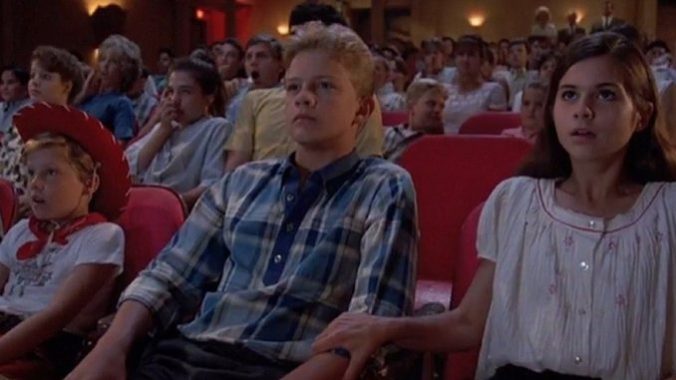30 Years Ago, Joe Dante’s Matinee Explained the Wonder and Terror of Cinema

As so many have pointed out, 2022 was a big year for movies depicting the symbiotic wonder and terror of cinema, from the broken dreams of Pearl to the glory and carnage of Babylon to the deadly spectacle of Nope to, finally, the bittersweet obsession of Steven Spielberg’s The Fabelmans, which became an unofficial ambassador of this Dark Magic of the Movies mini-boom when it turned out to be the only one to net a Best Picture nomination. But 30 years ago, Spielberg’s sometime collaborator Joe Dante was already reckoning with the dark impulses behind a childhood love of cinema with Matinee. Like Spielberg before him, Dante’s ’60s-set remembrance bombed with audiences while hitting its movie-nerd target audience straight in the heart.
Many of Dante’s previous movies involved monsters, kids on an adventure, or kids on an adventure fighting monsters, though he skewed more satirical and less sentimental than, say, The Goonies, a similarly Spielberg-produced Warner Bros. release that even had a name reminiscent of Dante’s Gremlins. Matinee makes the monster-picture fanboy subtext of Dante’s referential movies into the text – it’s about Gene (Simon Fenton), an army-brat monster fanatic, coming of age in 1962 Florida – and expands on it, theorizing about the catharsis of getting cheap thrills from the movies, horror in particular, comparing them to cave paintings. “You make the teeth as big as you want, then you kill it off, everything’s okay, the lights come up…” explains Lawrence Woolsey (John Goodman), an outsized huckster of a movie producer modeled on William Castle. A life of selling that catharsis to the masses has made Woolsey faithful to the church of cinematic hokum, and unflappable in the face of potential annihilation. As the Cuban Missile Crisis looms, he’s unbothered and sees only opportunity to sell his new monster movie: “Millions of people looking over their shoulder, waiting for God’s other shoe to drop, never knowing if each kiss, each sunset, each malted milk ball might be their last.” Is that so different from the romantic impulse that drove people out to the biggest hits – many of them horror – of the pandemic era?
The movie that Woolsey imagines his audience might imagine as their last is Mant!, an enterprise perfectly explained by its tagline: “half man, half ant, all terror!” Gene and his friends are dying to see it, and Matinee’s plot gathers up some comic threads, among them Gene’s tentative courtship of Sandra (Lisa Jakub), the school activist whose parents insist on their family’s free-speech right to see Mant! even though it has few to no socially redeeming qualities. (The free-speech angle is cooked up by Woolsey himself, staging moral-majority-style protests outside the theater before the film opens.)
-

-

-

-

-

-

-

-

-

-

-

-

-

-

-

-

-

-

-

-

-

-

-

-

-

-

-

-

-

-

-

-

-

-

-

-

-

-

-

-








































